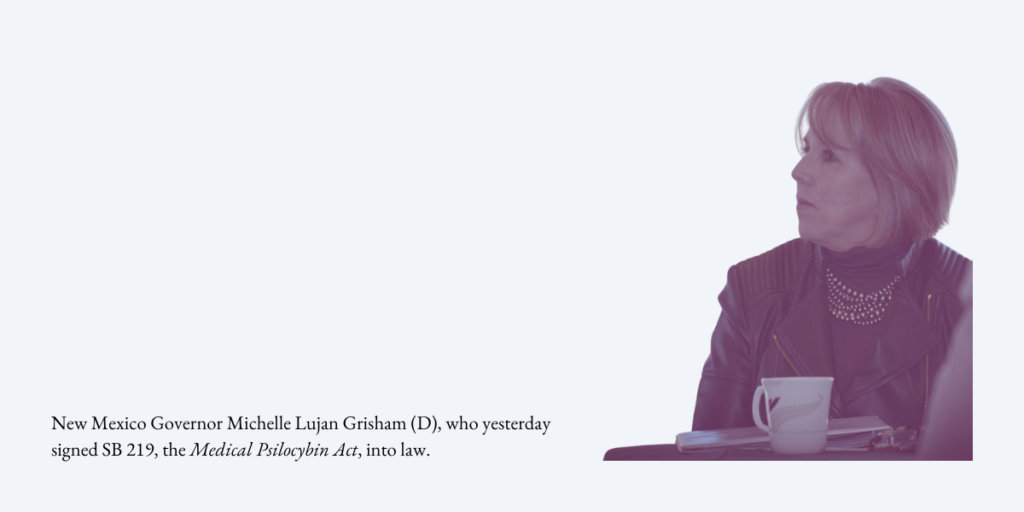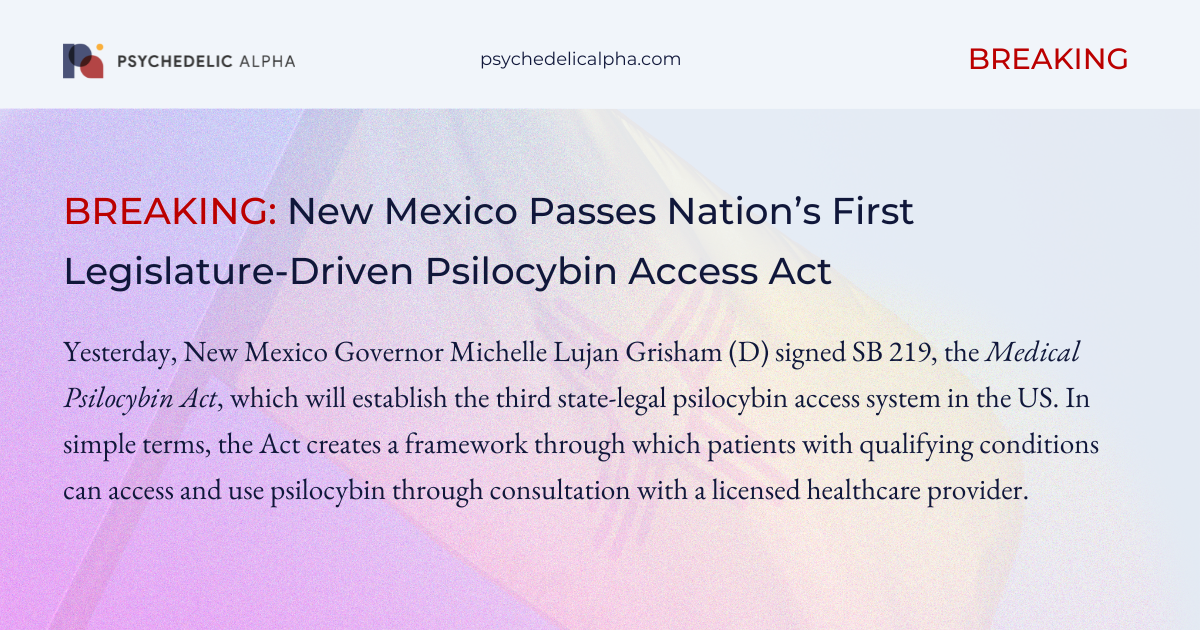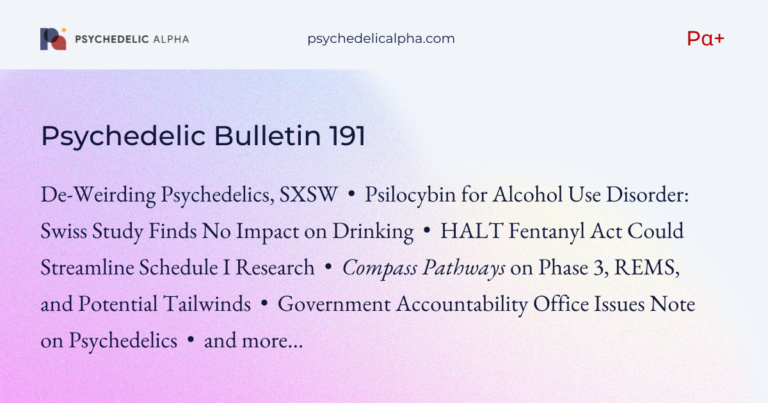Yesterday, New Mexico Governor Michelle Lujan Grisham (D) signed SB 219, the Medical Psilocybin Act, which will establish the third state-legal psilocybin access system in the US.
In simple terms, the Act creates a framework through which patients with qualifying conditions can access and use non-synthetic psilocybin through consultation with a licensed healthcare provider.
Qualifying conditions, according to the bill, are ‘major treatment-resistant depression’, PTSD, substance use disorders and end-of-life care, as well as other conditions that the department might approve.

While Oregon and Colorado’s state-legal psilocybin programs were the product of popular ballot measures, New Mexico’s is the first to be mandated by the state’s legislature. The Act proved popular there, passing the Senate 33-4 and the House 56-9 in convincingly bipartisan floor votes.
The program, which is set to be ready for launch by December 31st, 2027, now enters a development period where the state’s Department of Health—which is tasked with overseeing the system—will work with a nine-person Medical Psilocybin Advisory Board to formulate rules.
That advisory board must, according to the language of the Act, include at least one member from an Indigenous group, one mental health equity advocate, one representative from the health care authority, and one veteran. That will include the qualifications and standards required of trainers, facilitators, cultivators, and so on; as well as treatment protocols, dosage standards, approved settings, data collection requirements, and so on.
Some of these elements are baked into the Act. For example, the treatment protocol will entail a minimum of one preparation session and one post-administration integration setting, all of which must happen at approved sites. However, there is plenty to flesh out.
While the group might draw on Colorado and Oregon’s rules for inspiration, the deeper involvement of licensed healthcare providers in the New Mexico system requires some distinct considerations.
One of those considerations is how to assure those professionals that they can participate in such a system without placing their licenses in jeopardy. For one, the Act removes psilocybin, when used in the context of this system, from the Controlled Substances Act, though there will presumably be further discussion of how to ensure the participation of this cohort during the development period.
The Act also establishes a treatment equity fund and a research fund, though there is little detail.
Any future FDA-approved medicine containing psilocybin, such as Compass Pathway’s or Usona Institute’s psilocybin candidates, would be excluded from the Act.
The process to establish this system began in earnest last year with the passage of SM 12, which called on the Department of Health to study the feasibility of establishing such a program.
With the passage of this bill, the first lawmaker-initiated state psilocybin system in the country will launch in January 2028. ∎
Background: Drugs and Behavioural Health Care in The Land of Enchantment
New Mexico Governor Lujan Grisham is no stranger to drug policy reforms, with her state boasting the nickname, ‘The Land of Enchantment’. Having repeatedly facilitated the progress of recreational marijuana legalisation bills since taking office in 2019, she eventually signed that reform into law in April 2021 via the calling of a special session.
But that program has not been without controversy. Last year it came into conflict with federal law enforcement, as a spate of seizures by Customs and Border Protection saw the Biden administration pitted against the Governor.
More recently, Lujan Grisham has sought to take a harder line against drugs, aiming to address issues of drug use and mental illness that are widespread in cities like Albuquerque. That stance has put her at odds with other Democrats, but is in line with certain other blue Governors like Tina Kotek in Oregon, who signed a bill recriminalising drug possession last Spring.
Her fellow lawmakers are also looking to crack down on certain drugs, with the state’s cannabis program coming under scrutiny from Democrats via HB 10. That bill would establish a new enforcement bureau and recruit a police force to enforce the Cannabis Regulation Act. The bill has passed both the House and Senate, and the Governor has previously urged her colleagues to support it, suggesting it will be signed into law.
The state’s behavioural health care system also has a thorny past, with fifteen of its agencies embroiled in a Medicaid fraud probe in the early 2010s. Lujan Grisham’s predecessor, Governor Susana Martinez, accused those agencies of siphoning off $36 million from the state’s Medicaid coffers through overbilling. The groups settled in 2019 after a six-year legal battle that revealed there was no fraud committed, and the extent of the overbilling was much less than originally claimed.
That saga cast a shadow over the system. Still, by comparison to other states, it does appear to perform relatively well. In fact, a Forbes Advisor report published in January placed the state as the 37th worst for mental health in the country, which means it’s actually quite good. Colorado and Oregon, which already have psilocybin access systems, came in at 10th and 11th worst, for comparison.
Its behavioural health system also received a funding boost via SB 1, which was swiftly passed this session. That bill establishes a Behavioral Health Trust Fund to support mental health and substance use services. SB 2 and SB 3 are also focused on bolstering the state’s behavioural healthcare system.





